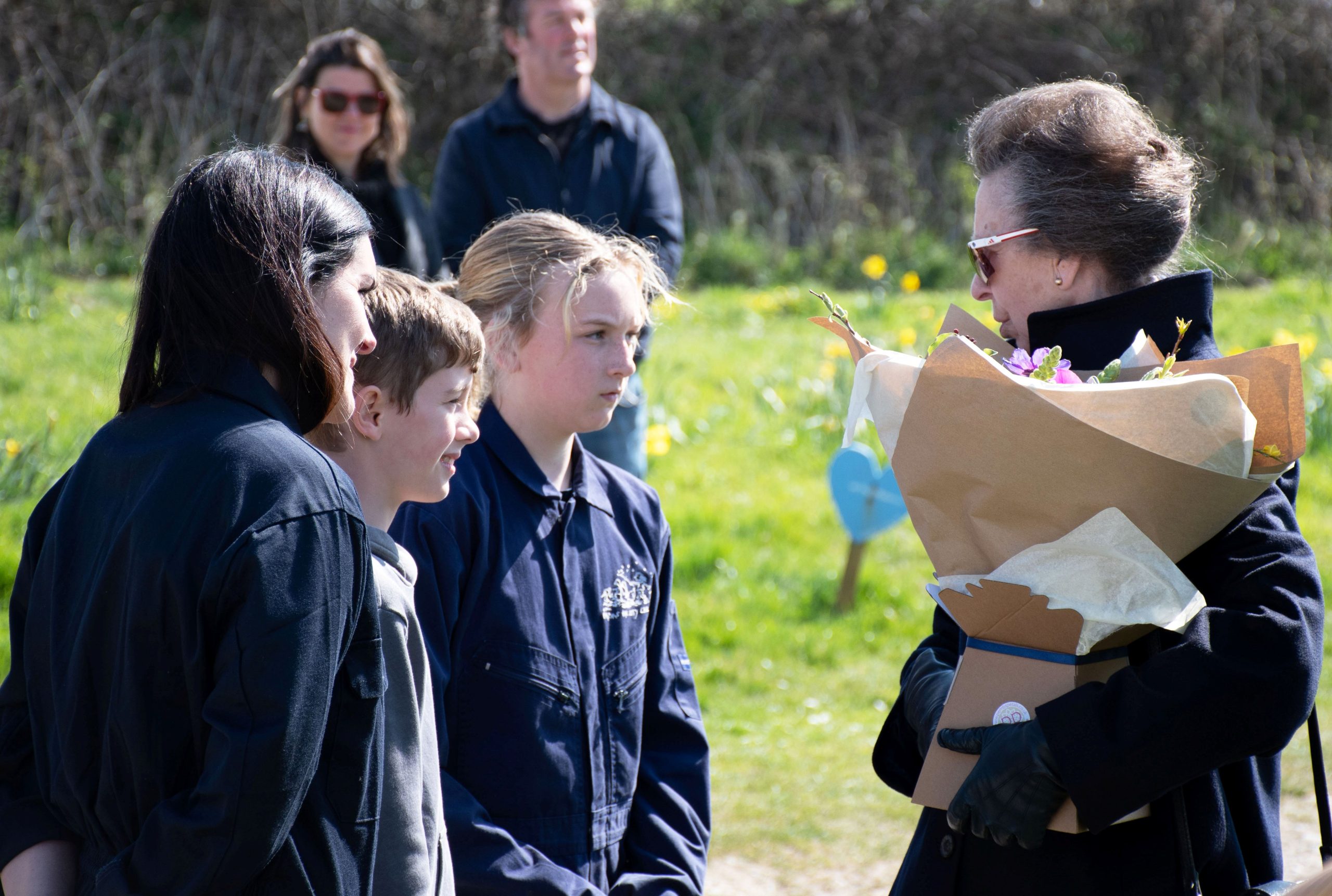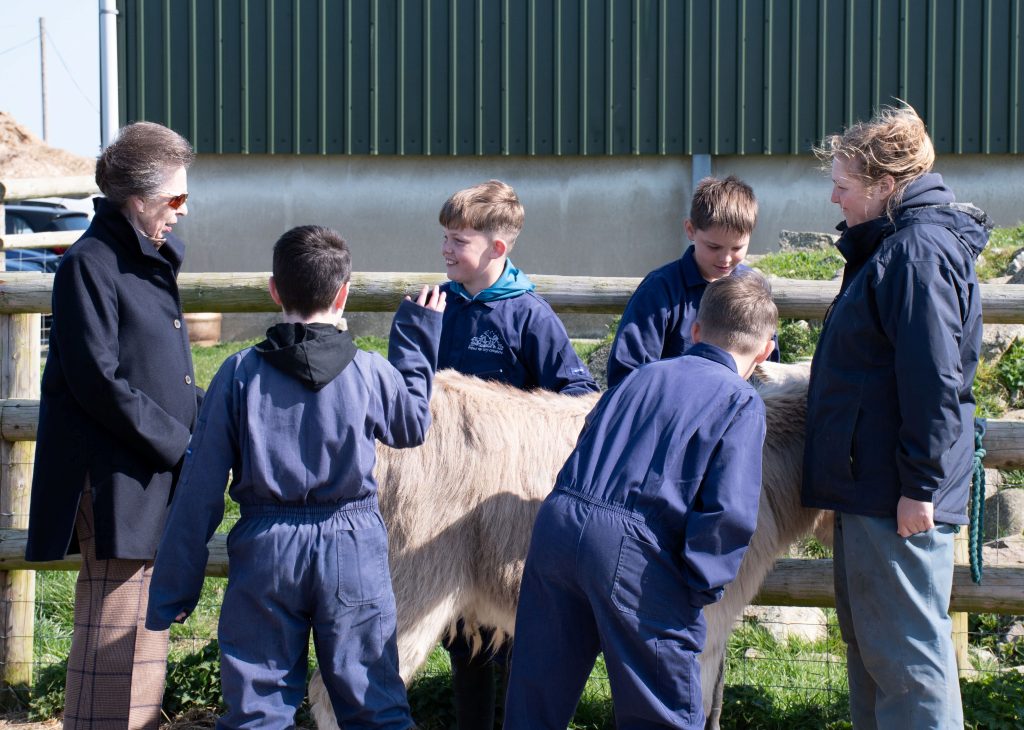Education
Senedd shoots down outdoor education bill

MEMBERS of the Senedd rejected calls to establish a legal requirement for residential outdoor education opportunities for children and young people in Wales’ schools.
The Senedd narrowly voted against the general principles of the residential outdoor education bill, which was introduced by the Conservatives’ Sam Rowlands.
Mr Rowlands said his bill would remove a postcode lottery in terms of access to residential outdoor education, so no child misses out due to their personal circumstances.
He explained that the bill would create an entitlement for all pupils in maintained schools to experience at least four nights of residential outdoor education free of charge.
The North Wales MS argued the bill would have a long-term net positive economic impact.
He warned: “Outdoor education residentials are valued by children, parents and teachers alike, yet, for those without the means to access them, they are, in fact, unattainable.
“I believe this is fundamentally wrong and this bill sets out to remove those financial barriers to participating in what can be life-changing experiences.”
Mr Rowlands, a former Conwy council leader, said the bill would support the long-term physical and mental health of young people.
Labour’s Buffy Williams outlined the education committee’s stage-one report on the bill, which raised concerns about some children and young people being excluded.
The newly elected committee chair pointed to the example of education other than at school, such as pupil referral units or those who are homeschooled.
Peredur Owen Griffiths, who chairs the finance committee, said the bill would require significant funding against a backdrop of Welsh Government budgetary pressures.
An impact assessment found the bill would cost between £74m and £96m over five years.
Sarah Murphy, the Labour MS for Bridgend, raised the legislation committee’s concerns about the lack of a definition of residential outdoor education in the bill.
Ms Murphy, who was elected chair in a knife-edge 28-29 vote on Tuesday, warned that the bill does not provide an appropriate mechanism for pupils to opt out.
Peter Fox said Monmouthshire council prioritised access to outdoor education while neighbouring councils withdrew support to make efficiency savings.
The former council leader said: “We rationalised our provision and maintained the offer, as we had seen the benefits of children for decades.”
Mr Fox told the chamber it is a sad indictment that the Senedd does not enable backbench legislation to progress, with no opposition bills agreed since 2016.
The Monmouth MS said: “Why don’t we allow these things to progress and see where they go? And if you can’t find a way through that, then things can be stopped in the future.
“Why always stop legislation before it has an opportunity to progress, to breathe and to really show what it has the potential to do?”
Heledd Fychan, Plaid Cymru’s shadow education secretary, backed the bill’s core aim of ensuring equal opportunity for every child.
However, she highlighted the huge pressures already on school staff who often volunteer to help with residential outdoor education.
“They don’t receive any additional payment for this work,” she said. “They do it because they see the benefit for the children and young people in their care when they are in our schools.”
Carolyn Thomas, the Labour MS for North Wales, raised existing school budget pressures, with the bill estimated to cost about £20m a year to cover teachers, lodging and transport.
She said: “At a time when schools are having to face extremely difficult decisions, including redundancies, placing additional pressure on the education budget would be unthinkable.”
Lynne Neagle raised concerns about the capacity of the outdoor education sector to meet the bill’s requirements on the Welsh language and additional learning needs provision.
Wales’ new education secretary warned the bill would require additional changes to terms and conditions of school staff, which could hamper recruitment and retention.
Ms Neagle said education unions and councils have significant concerns about the potential impact on an already stretched financial situation facing schools.
She told the chamber the bill would bind the Welsh Government to expressly fund residential outdoor education over and above any other aspect of Wales’ new curriculum.
The Senedd voted 25-26 against the bill following the debate on April 17, with opposition members outnumbered by the Welsh Government and Labour backbenchers.
Education
New headteacher appointed at Ysgol Bro Gwaun

Miss Finn to take over as Mr Edwards retires
A NEW headteacher has been appointed at Ysgol Bro Gwaun in Fishguard as the school prepares for a change in leadership this September.
Current deputy headteacher, Alana Finn, will step into the role following the retirement of headteacher Paul Edwards at the end of the academic year in July.
Miss Finn, who grew up in Tumble, Carmarthenshire, has worked at the school for 23 years. She began her career at Ysgol Bro Gwaun as a newly qualified teacher after studying Welsh and history at Aberystwyth University, and has since held various management roles before becoming deputy head.
The school’s board of governors confirmed Miss Finn’s appointment after what was described as a “rigorous selection process.”
Miss Finn said she was “honoured and excited” to take on the role.
“This school has such potential,” she said. “I am looking forward to working with the excellent staff, our pupils, families, the governing body, and the wider community.
“I want not just staff but pupils as well to be innovative in their thinking. We are working towards excellence, but excellence has a different meaning for every child. We are telling pupils they can achieve whatever they want, and the school will support them.”
She said the school’s inclusive and nurturing ethos is what makes Ysgol Bro Gwaun special.
“Everybody who comes in says there is a nice feeling about the place. We listen to the voice of the pupils, and every pupil is cared for as an individual. We work as a family here, and I want to continue building on that ethos while also driving standards.”
Miss Finn is well-regarded for her commitment to school improvement, the development of a strong bilingual ethos, and her work on safeguarding and wellbeing.
She said her appointment had been warmly received by the school community.
“So many of the pupils have been coming up to congratulate me,” she said. “It was announced in assembly and then they were all at my door!”
She also paid tribute to her predecessor.
“I want to congratulate Mr Paul Edwards on his achievements at Ysgol Bro Gwaun and I wish him a very well-deserved retirement. I’d also like to thank my family, friends, and the whole school community, past and present, for their continuous support.”
Wendy Raymond, chair of governors, said: “On behalf of the governing body of Ysgol Bro Gwaun, we look forward to supporting and working with Miss Finn and are confident she will be a great leader of our school community in Fishguard and the surrounding area.
“We also extend heartfelt thanks to Mr Edwards for his dedication and outstanding service. We wish him good health and happiness in his retirement.
“As Ysgol Bro Gwaun embarks on this new chapter, the school community is enthusiastic about a future that honours its roots while embracing fresh opportunities for growth and excellence.”
Education
Welsh pupils harness Minecraft to explore offshore wind and climate careers

PUPILS at Golden Grove School in Pembrokeshire are diving into the world of renewable energy and marine conservation through the immersive Minecraft Education world Offshore Wind Power Challenge—a collaboration between The Crown Estate and Microsoft UK.

Available in both Welsh and English, the virtual world enables students to design and build their own offshore wind farms to power a coastal village. Along the way, they gain insights into climate change, environmental protection, and careers in sustainability, engineering and conservation.

The initiative has now been expanded with new classroom resources tailored for younger learners and aligned to the Welsh curriculum. Lesson plans for teachers are also being provided to support the integration of the material into everyday teaching.
As part of their focus on developing green skills in schools across Wales, The Crown Estate partnered with education specialists Dosbarth to create the new learning content. The organisation is currently delivering taster sessions across the country, including to Year 5 and 6 pupils at Golden Grove.
Wales is emerging as a leader in renewable energy, with new floating offshore wind farms set to be developed in the Celtic Sea under The Crown Estate’s latest seabed leasing round. These projects have the potential to generate up to 4.5GW of electricity—enough to power more than four million homes. Independent research estimates the economic value of these developments could reach £1.4bn, supporting up to 5,300 jobs.*
Rebecca Williams, Director of Devolved Nations at The Crown Estate, said: “This is an exciting collaboration that brings new educational content to schools through the best-selling game of all time. This Minecraft Education world provides students and teachers with a fun way to explore the opportunities and challenges of our energy transition while protecting the natural environment, through the languages that matter most to them.
“The Crown Estate is committed to creating partnerships that have a positive impact. We hope this initiative will inspire young people to develop their skills and discover the green careers of the future.”
Karen Jones, Managing Director of Dosbarth, added: “By creating new materials for younger audiences that align with the Welsh curriculum—and providing accessible lesson plans for busy teachers—we believe these resources will inspire even more pupils across Wales to become the next generation of environmental leaders and problem-solvers.”
Charity
Royal visit celebrates Pembrokeshire charity’s community impact

STAFF, volunteers and visiting pupils at Lower Treginnis Farm were delighted to welcome a very special guest on Wednesday (April 2), as Her Royal Highness The Princess Royal visited the site in support of the charity Farms for City Children.
The Princess Royal, who has served as Patron of the charity since 1991, spent the afternoon touring the farm, which lies just outside St Davids and is the most westerly farm in Wales. It was her fourth visit to the site since first attending in 2010.
Farms for City Children was founded by author and former Children’s Laureate Sir Michael Morpurgo and Lady Clare Morpurgo. The charity provides immersive week-long farming experiences for urban children, helping them connect with nature, food production and rural life.

During the visit, The Princess Royal met children from Pembroke Dock Community School as they took part in hands-on farm activities including grooming donkeys, feeding rare-breed piglets, and planting vegetables in the market garden.
She also joined the children for a coastal workshop led by Câr y Môr, Wales’ first regenerative seaweed and shellfish farm, which operates just off the nearby shoreline.
Her Royal Highness was accompanied on her tour by Gethin Jones, Farm School Manager, and later met members of The Friends of Treginnis—a local fundraising group that has supported the charity since 1991. Over the past three years, the group has raised more than £30,000 to help schools from across Pembrokeshire, including Pembroke Dock Community School, take part in the farm’s week-long programmes.

Before departing, The Princess Royal was introduced to members of the charity’s staff and to Aled Davies, the farm’s local partner farmer. She was then presented with a gift of fresh farm produce by two pupils, Erin Hubbard and Jack Kinnard.
Tim Rose, Head of Operations for Farms for City Children, said: “We were delighted to welcome The Princess Royal to Lower Treginnis and to share the experience of being ‘farmers for a week’ with her. Her visit was greatly enjoyed by everyone at the farm and it was our pleasure to be able to show her how the work of the charity interacts with so many different aspects of the Pembrokeshire community.

“We are hugely appreciative of Her Royal Highness’s continued support and enthusiasm for the work that we do.”
-

 Business6 days ago
Business6 days agoSpaceX eyes Milford Haven for new UK facility
-

 Crime7 days ago
Crime7 days agoPembrokeshire farm worker accused of threatening to burn employer’s farm
-

 Crime6 days ago
Crime6 days ago‘Yeah but no but’ insult to female officer lands Monkton man with court fine
-

 Features6 days ago
Features6 days ago‘We weren’t wild. We were unprotected’: A generation groomed and forgotten
-

 Crime6 days ago
Crime6 days agoLeaked messages reveal shocking culture at HMP Parc amid misconduct probe
-

 Politics7 days ago
Politics7 days agoProbe into ‘escalating’ horse fly-grazing in Pembrokeshire
-

 Crime6 days ago
Crime6 days agoInquest reveals tragic consequences of inadequate medication in prison
-

 Community6 days ago
Community6 days agoTenby boat lift signals start of tourist season in Pembrokeshire
































